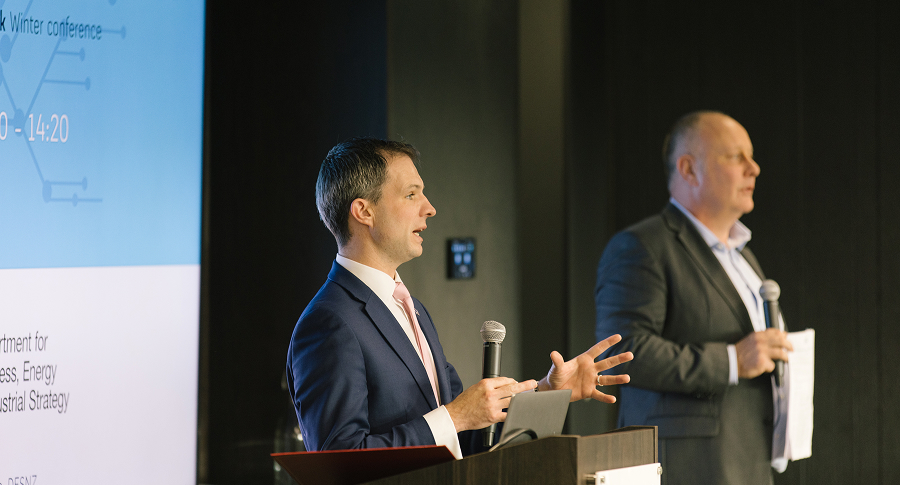Regen's Energy Justice and Just Transition Lead Fraser Stewart discusses the vital importance of a 'just transition' to net zero. The first in Regen's 'Energy & Justice Spotlight' blog series, highlighting key just transition ideas and topics.

Regen's Energy Justice and Just Transition Lead Fraser Stewart discusses the vital importance of a 'just transition' to net zero. The first in Regen's 'Energy & Justice Spotlight' blog series, highlighting key just transition ideas and topics.

Over the last year, soaring energy prices as a result of the rising cost of gas has caused severe hardship for people and communities across the country.
This has led to a steep increase in fuel poverty and its associated health and social issues, such as respiratory illness and financial hardship, compounded by a wider cost-of-living crisis. National Energy Action now estimates that over 6.7 million UK households are living in fuel poverty, expected to rise to over 7 million after current government support ends in April.
All of this, of course, is taking place against the backdrop of the climate emergency and our net zero transition, bringing into sharp focus the need for a more resilient, clean, and secure energy system. Transitioning to homegrown clean energy such as wind and solar can help better insulate us from international price shocks, providing affordable, planet-friendly energy to power our homes, communities and industries.
However, the energy crisis has brought another issue to light: that is, the issue of fairness. While the energy crisis has affected everyone, those already socially and economically disadvantaged in society are those are suffering most harshly. Those are the people least able to insulate themselves from rising prices, either financially or with new low-carbon technologies and energy efficiency, and so are turning down their heat and energy use to dangerous levels or face running up debt and arrears.
Those low income and disadvantaged communities who have been hardest hit by the energy crisis, are also the people who have so far benefitted least from the net zero transition. Without dedicated support and consideration, they are the most at-risk of being left behind as we set about cleaning up our act.
This is a critical problem. The UK simply cannot achieve its net zero ambitions at the scale required without people everywhere being supported to make changes in their homes, communities and lives to cleaner forms of energy and transport - including those diverse low-income and working-class communities, people with disabilities, people of colour and others who have been too often shut out of benefit and the wider conversation.
We also cannot do this at the scale and pace required without meeting people where they are and bringing them into the fold. As highlighted in the UK Government's landmark Net Zero Review, net zero will require huge changes in how people heat their homes, travel, work and interact with the energy system. This means meaningful engagement to ensure that the transition reflects the needs of people and places everywhere, and that everyone can benefit in the process.
And for the energy industry itself, we cannot hope to assemble a more inclusive one, capable of undertaking the challenge ahead, without more people from underrepresented backgrounds at the table.

The upshot of this, of course, is that by prioritising fairness in the energy system and doing more to put those groups and communities first, we can create something far greater than the sum of its parts. We can help reduce bills and create healthier homes for people who need it, reducing poverty, health issues and strain on social care; we can create cleaner, more expansive and accessible public transport that connects people to jobs and green space and each other; we can support communities with new revenue from on and offshore wind to tackle social issues and develop new skills, employment and capabilities.
With fairness front-and-centre of our thinking, we can create a net zero energy system that reflects the society it is built to serve, and that captures the massive opportunity on offer at this formative moment in time.
This is why Regen is placing a Just Transition at the forefront of our thinking. In short:
A Just Transition is a net zero transition that ensures those already on the margins of society are not left behind or penalised, or, better still, can actively benefit as a priority from a clean energy system.
This idea is not new, but has been increasingly gaining traction in policymaking and across the energy sector, with electricity networks, local authorities, community organisations, devolved governments and funders making this a key focus of their future plans. Addressing fairness issues was also a key theme of the government's Net Zero review:
"The transition will be dynamic, and the costs and benefits will not fall evenly across households. As the UK continues to decarbonise, it will be important to take account of the factors that influence the distribution of costs and benefits."
Regen has always recognised the importance of a Just Transition and wider representation in the energy sector, such as through our leading ReWIRE programme, and this year we are ramping up these efforts to ensure it is at the heart of everything we do both internally and across the energy system. In 2022, we expanded our work in this space - hiring a Just Transitions Lead and reshaping our internal processes to embed just transition thinking within Regen culture.
We want to work together on this, across the energy sector - it cannot happen without all of us. We welcome your thoughts, collaborations and ideas, and challenge you to put justice at the heart of your energy thinking.
This year, we will be developing this further into dedicated projects, such as our recent offshore wind paper and current work with Scottish Government exploring the role of local and community energy for a just transition, and into thought leadership and convening around this crucial topic.
Our hope is to bring critical evidence and analysis to this conversation, harnessing Regen's expertise, analytics, and diverse networks to help build a fair, clean energy system.
This will be the first in a monthly instalment of blogs running throughout 2023, entitled the 'Energy & Justice Spotlight' series. In these blogs, we will explore key themes such as transport, offshore wind, clean heat, markets, hydrogen and more, unpacking their justice implications and key opportunities for the future. With this, we hope to drive forward our collective thinking and action on these pivotal issues, to help shape a fairer energy system that truly works for people and planet alike.
Sign up to receive our monthly newsletter containing industry insights, our latest research and upcoming events.